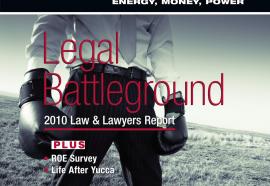Not-So-Green Superhighway
Unforeseen consequences of dedicated renewable energy transmission.
Achieving aggressive renewable energy goals will require building thousands of miles of new transmission lines, and these so-called “green-power superhighways” could bring major new sources of low-cost electricity into the market. But will those sources be renewables? Analysts Roger Bezdek and Robert Wendling argue that with new access to distant wholesale markets, coal-fired generation would become more competitive than ever.











